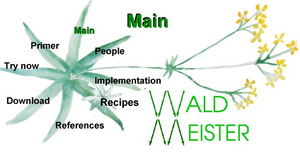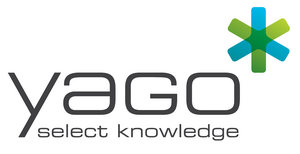Software
AIDA
AIDA is a system for discovering and disambiguating named entities (persons, organizations, ...) in text.
ClausIE
ClausIE is an open information extractor which extracts relations and their arguments from natural language text. ClausIE exploits linguistic knowledge about the grammar of the English language to first detect clauses in an input sentence and to subsequently identify the type of each clause according to the grammatical function of its constituents. ClausIE is based on dependency parsing and a set of domain independent lexica. The extractor can be currently run under various settings.
CLOCQ
CLOCQ is a toolkit for efficient fact-centric access to Wikidata, and provides functionality to retrieve relevant Wikidata facts for a given text-snippet. The software is built using Python, and provides different possibilities to integrate CLOCQ into your system.
CONVINSE
CONVINSE provides a framework for conversational question answering (QA), that is based on a general three-staged pipeline for integrating heterogeneous sources (Wikidata facts; Wikipedia text, tables, infoboxes) into the answering process. The individual modules can easily be replaced by inheriting from the respective parent classes, creating custom instances of the pipeline for your specific use-case. The software is built using Python.
DIPHA
Dipha provides algorithms for topological data analysis on distributed systems, including creation of cell complexes and computing persistence diagrams.
FunSimMat
FunSimMat is a comprehensive functional similarity database for proteins and protein families and a tool for easy and fast disease gene prioritization.
MINERVA
Distributed Search: Minerva.
The Peer-to-Peer (P2P) Approach Allows Handling Huge Amounts of Data in a Distributed and Self-Organizing Way.
NEFI
NEFI is an extendable computer vision tool for extracting networks from
images. It extracts network information in form of a weighted graph and
works for a wide range of input images such as: insect wings, leaf
venations, slime molds, mud cracks etc.
PHAT
Phat is a toolbox providing several algorithms and data structure for the computation of persistent homology.
RDF-3X
RDF-3X is an RDF storage and retrieval system that achieves excellent performance by following a RISC-style design philosophy.
SPASS+T
SPASS+T is an extension of the superposition-based theorem prover SPASS that enlarges the reasoning capabilities of SPASS using some built-in arithmetic simplification rules and an arbitrary SMT procedure for arithmetic and free function symbols as a black-box.
TopX
TopX is a Search Engine for Ranked Retrieval of XML (and Plain-Text) Data.
Waldmeister
Waldmeister is a Theorem Prover for Unit Equational Logic. Its Proof Procedure is Unfailing Knuth-Bendix Completion.
YAGO
Yago is a huge semantic knowledge base. Currently, Yago knows over 900,000 entities











